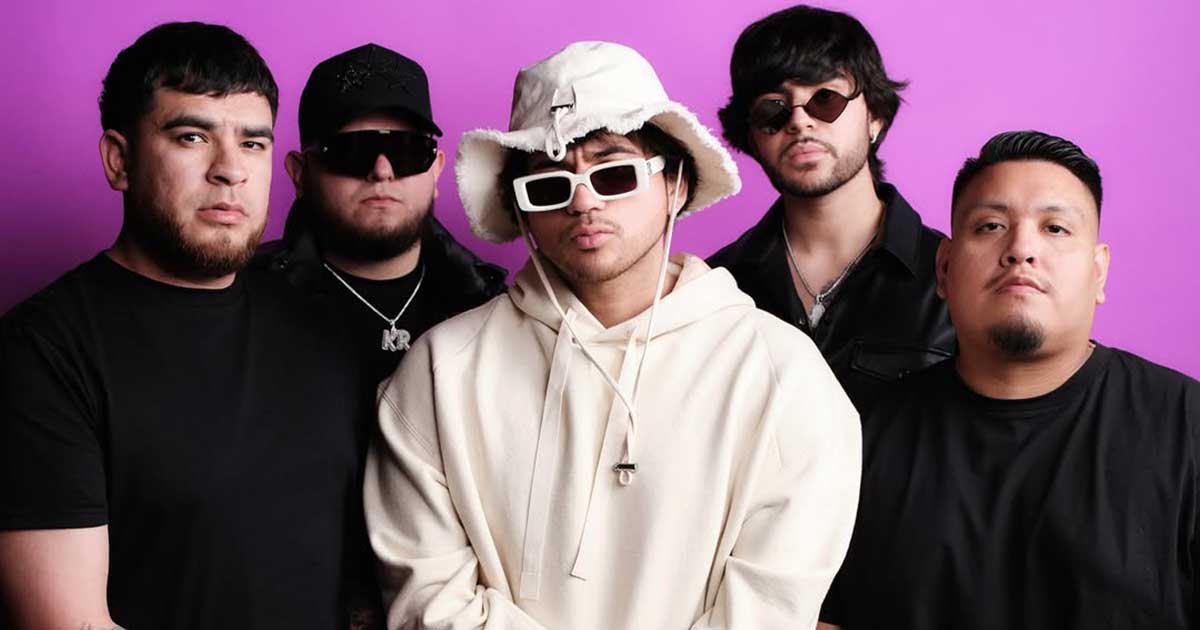Afrobeats artiste Ajofé, also known as Otoba7, has been described as a boundary-pusher who dares to create sounds that defy convention and expectations. Inspired by the likes of 2Shortz and BigLo in the early 2000s, he forged a distinct and appealing approach to delivering his alternative sound.
After releasing a few projects to mark his niche in Afrobeats, Ajofé progressed from his initial persona as “Ajofé Street Mic” to emerge as a remarkable voice in the Alté music movement.
The most captivating aspect of Ajofé’s music lies in its unique fusion of street language, storytelling, raw emotion, and unconventional Afro-Groove beats, offering listeners a distinct and refreshing music experience.
In this interview with PREMIUM TIMES, we journey into the US-based Alté music revolutionary, his experiences as a Nigerian artiste making music in America, his definition of Alté music, his opinion about Tems and Burnaboy, and many more.
Excerpts…
PT: Who is Ajofé?
Ajofé: I am Adukwu Samuel Atadoga, professionally known as Octoba7. I am from Anyigba, Kogi State, Nigeria and now a citizen of the USA. I am married and blessed with a son. I love information Technology – IT and music. I love to build technological solutions that make life better and make music.
PT: What was your journey into music like?
Ajofé: I grew up in a home with a media background. My father worked with Kogi State Broadcasting Corporation. It was my introduction to music as a medium for healing. At this point, it was not necessarily music but just sound. As a kid, I was curious about the media, and I loved to imagine the technology behind good production – the magic that made sound production possible. That was what it was for the longest time.
Then, in secondary school, I started listening to artists like 2shotz and Biglow; those were my foremost inspirations in music. The thing about them was the simplicity of their delivery. I could not relate to the stories they were sharing in their music, but the fact that they spoke in a very relatable language made it easy to connect. Their style of music was more conversational, which got me curious about making music. So, I started writing lyrics with some of my friends in secondary school. We fondly used our classroom lockers as drums to create beats to which we vibed.
In Senior Secondary 2, I summoned the courage to step into the studio to record my first single titled “Oh Boy Weytin?” – a 10-minute track with nine verses. The rest, they say, is history.

PT: What kind of music do you create?
Ajofé: Based on my background, my music is heavily influenced by street language and conversations. As a reserved person, music is my medium for venting. When you listen to my music, you typically hear a lot of anger, it is how I heal. Style-wise, my songs usually have a fusion of 2Baba, 2shots, Jhus, Bella Shmurda, and Sky B. It is a little bit of all the artistes who have influenced my music over the years, which is why I call my sound “Afro Groove.”
My songs are unusual to the typical Afrobeats consumer. It is Afrobeats with a weird kind of groove. When you listen to my music for the first time, you might not notice it is my style till you are done listening to the third or fourth track. However, you would undoubtedly see the weirdness and uniqueness of the sound.
PT: What inspires your songs?
Ajofé: Life stories. Life experiences majorly influence my music. In terms of genre, it is a sub-genre of Afrobeats and Hip-hop. In terms of texture, it combines the people I grew up listening to, like Jay-Z, Fela, 2Baba, Jhus, Sky B, 2shots, etc. The way these people tell their stories and deliver their sounds inspires the sound I produce. I fuse all these influences and create a new sound from it.
PT: Do you write your songs?
Ajofé: I used to write all my songs myself, but these days, I just play a sound, put my mic on, and I just go on. This is mainly because I do not want to cook up the stories; I like lyrics to be as raw as I feel them. Life experiences inspire me, so, with my recording style, there is no way I would manipulate the stories or emotions I am expressing. Sometimes, I only take note of the stories I am telling when I have finished recording. Then, I would replay the song and say, ‘Oh, I talked about this and that life story’.
For instance, my new track, “Iheneme”, is a song I wrote after I had a frustrating time with someone who was trying to underrate me. You know, when people perceive you as financially successful, they think they can take advantage of you. However, with me, it is different. I am still the same person from where I began, and wealth could not have changed me. People cannot take advantage of me because of where I am today. I no be your connect!
PT: As a Nigerian doing music in the USA, how would you say your new environment has influenced your sound?
Ajofé: A lot. Enunciation is one of the biggest things I can mention. Also, moving to the US contributed a lot to my music because the people here can be honest, whereas, in Nigeria, everyone wants to be nice to you. As a creative person, for you to grow, you need fair criticism – people who can give you honest feedback.
When I arrived here (Iowa), I did not stop doing music. I performed at concerts and local shows; I played my music for friends and colleagues and took a very earnest interest in their feedback. One of the common feedbacks I got was that people could not hear the words I was singing, so I knew I had to work on diction.
READ ALSO: How big is the Nigerian music industry?
More so, the US allowed me to work with world-class professionals. For the past four years, top professionals have mixed and mastered all my songs – the same people working on Beyoncé’s songs. That level of dedication came from living in an environment where I saw the value of working with professionals.
In terms of self-esteem, it also helped a lot. If you were a music creator, you would always be very sensitive to your songs, especially if you did it from your heart. You have to be vulnerable enough to understand how other people are reacting to your art – that level of sensitivity – that improves self-confidence.
PT: Who do you sing for?
Ajofé: Me.
PT: I mean, who is your audience? Your fan base?
Ajofé: Me! I sing for myself. This is the concept. I always tell people that the music I create is for myself. The fact that people are playing my songs and enjoying them, and I earn additional income from these songs, is just an added advantage. The goal was to tell my story and enjoy it. That is why I have about a hundred unreleased songs and ten albums.

On Afrobeats
PT: In recent times, Afrobeats have been topping global charts. How significant is this development?
Ajofé: It goes back to what I was saying about self-confidence in music: you value what you are. The rest of Africa has just begun to experience what the rest of the world had felt about Afrobeats. The first thing I did after I got here was play my songs for a couple of friends, and they all told me they liked the sound. The sound of Afrobeats has always been good.
Afrobeats is now topping global charts courtesy of Africans in the diaspora who are sharing Afrobeats songs in public places and private spaces with close friends. Africans in the diaspora have developed the self-confidence to introduce non-Africans to the sound, which is what it is. Sometimes, strange people call me on the phone to tell me they just heard someone sounding like me on the radio. They probably heard Rema Wizkid or Burnaboy on the radio. But because my songs are the first Afrobeats sound they have ever heard, to them, every other Afrobeats song they hear will always sound like my song. The singer will always sound like me.
PT: Most Afrobeats songs and artistes topping global charts are Nigerians; why is that so?
Ajofé: The COVID-19 global lockdown played a significant role in creating awareness in Africa that a lot is now possible. The period was like a leveller for everyone. You could create, collaborate and share worldwide from where you were.
Also, the post-COVID era saw a lot of tech acquisitions and mergers that involved Nigerians. What happens is that when these people organise private or public events to celebrate these achievements, they usually play Nigerian songs all through, not Ghanaian songs. So, if you hear a Nigerian elected or appointed into a prominent office in Europe, America, or Asia, they would likely spread Afrobeats by playing Nigerian songs at every opportunity they get.
PT: Given the remarkable achievements Afrobeats has recently attained on the global stage, what is your vision for the genre’s trajectory over the next five years?
Ajofé: I hear people saying, “Afrobeats is taking over”. I do not think it is a competition. Afrobeats is not taking over. For instance, most global awards still create a separate category for Afrobeats. There was never a time when we heard or said this is an Afrobeats Grammy Award. It will always be Afrobeats, hip-hop, or other genres in the Grammys. It is never going to become a competition against different genres. Afrobeats has always been acceptable; we have not had a platform. Afrobeats has never been rejected anywhere.

Talking Alté music
PT: Recently, we have seen many Nigerian artists blend their sounds with Alté(alternative) music. Are we witnessing the rise of Altémusic?
Ajofé: Glad you asked this question. The alternative sub-genre of Afrobeats is where I belong. It is simply the alternative to the regular. Like I have always said, when you listen to my music, it might sound familiar, but it differs from the sound you are used to. It is the alternative sound. You could feel the sound, but it would hit you differently.
Most of us pay attention to the sound engineering of our music. My sound is mostly E-minor or G-minor; I do not sing in major (talking about sound keys in music). Regular sounds are majors, while alternative sounds are minors.
Even the Alternative genre already has sub-genres. People are coming up with Afro-fusion, Afro-Groove, Emo-Afrobeats by Ckay, Okporoko music by Odumodu Black, Afro-Rave by Rema, etc. These are sub-genres that make up the Alté music genre.
PT: With the new wave of Alternative music artistes on the rise, what do you think the future holds for the Altémusic movement?
Ajofé: One common thing about Altémusic artistes is that they are the most collaborative artistes worldwide and do not make a fuss about it. They began the new wave of international collaborations in Africa, which is currently in vogue. The Alternative music genre is not just about Afrobeats; there is Alternative R&B, Jazz, Soul, Rock and Roll, etc. I listen to Alternative music by foreign artists like Childish Gambino, J Cole, Kendrick Lamar, Tyler Tha Creator, etc. I see AltéAfrobeats artists like Santi collaborating with people like these, which means a lot.
Altémusic is more established within the Afrobeats genre. This is thanks to the fact that we have been the most consistent artists. Take the likes of Ghost and Tec of Show Dem Camp (SDC), for instance; they are still the same as they were back in the day; Falz, still raps and sings the way he used to. When you listen to his music, he sounds like a Fela with a touch of hip-hop. There is also Amaarae, Asa, Bloody Civilian. This set of artists are already established and are topping various global and local streaming charts without making a fuss about it.
Altémusic has been one of the most consistent genres in the Afrobeats culture. It birthed the likes of Burnaboy, Tems, Ckay, Amaarae, Asa, Lady Donli and many other great artists. It is only ceremonial for me to mention that Alternative music will keep dominating the Afrobeats culture shortly.

Talking music
PT: Looking at the Nigerian music industry right now, you would notice many emerging artistes are truly talented and are already making hits. Who are the two artistes you think we should watch out for?
Ajofé: If Tems can stand and ‘hold the waters’, she will be exceptional. However, that comes with a lot of pressure. If she can continue to remain Tems and not be ‘drowned in the waters’, she could make a remarkable global impact. Though her voice was on Future’s famous song, “I Will Wait for You”, featuring Drake, many Americans know it is a sampled voice. They do not understand who Tems is yet. Therefore, it would be remarkable if she could stand the test of time.
On the other hand, Burnaboy could make that needed global impact. The way he is currently going about it may not be the best. He hustles for fame like the average American ‘one-hit wonder’ artiste. They become successful and trend for a while, and that is all. He needs to do it the way the legends would.
For instance, Kendrick Lamar could go eight years without dropping any song, but everyone gets to listen whenever he does. That is because he is a global legend. I would say Wizkid is one artiste moving in the right direction. He is not in a hurry to drop songs. “He no dey hustle am”. He is just doing music that he loves. He does not flaunt new gold chains or piercings. That is what Migos would do. You can never see Jay-Z do stuff like that.
If Burnaboy continues to hustle for fame the way he is currently going about it, in the next five years, he might become an American household name. It is possible. However, the truth is, it would end in heavy depression and may land him in trouble because he would be required to keep up with the optics. What this means is that he could be cancelled at any instant, and this is what has led many to depression. As of now, he is more likely to be cancelled than accepted.
On the local impact angle, there is this young artiste I have been working with for a while, Eeskay, who is good with his work. There is also this girl called Molley, a US-based Nigerian artiste She is also an Altéartist with a remarkable style.
PT: How do your fans connect with you?
Ajofé: I am on all social media platforms. You could always connect and interact with me on
Facebook: Octoba 7ven.
X: @realAjofé
Instagram: Ajofé.®
You should stream my music on Spotify and Apple Music.
Support PREMIUM TIMES’ journalism of integrity and credibility
Good journalism costs a lot of money. Yet only good journalism can ensure the possibility of a good society, an accountable democracy, and a transparent government.
For continued free access to the best investigative journalism in the country we ask you to consider making a modest support to this noble endeavour.
By contributing to PREMIUM TIMES, you are helping to sustain a journalism of relevance and ensuring it remains free and available to all.
Donate
TEXT AD: Call Willie – +2348098788999











